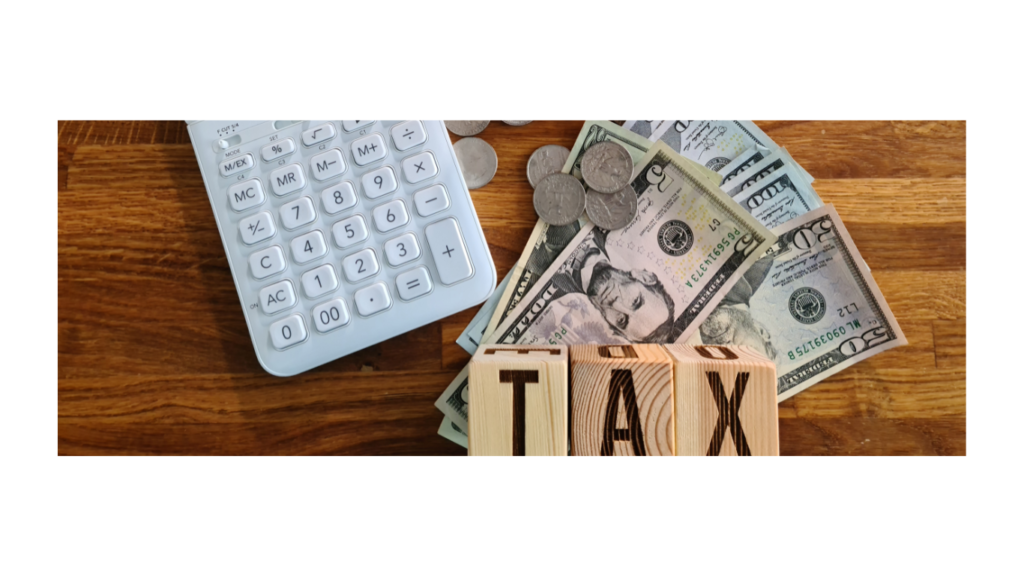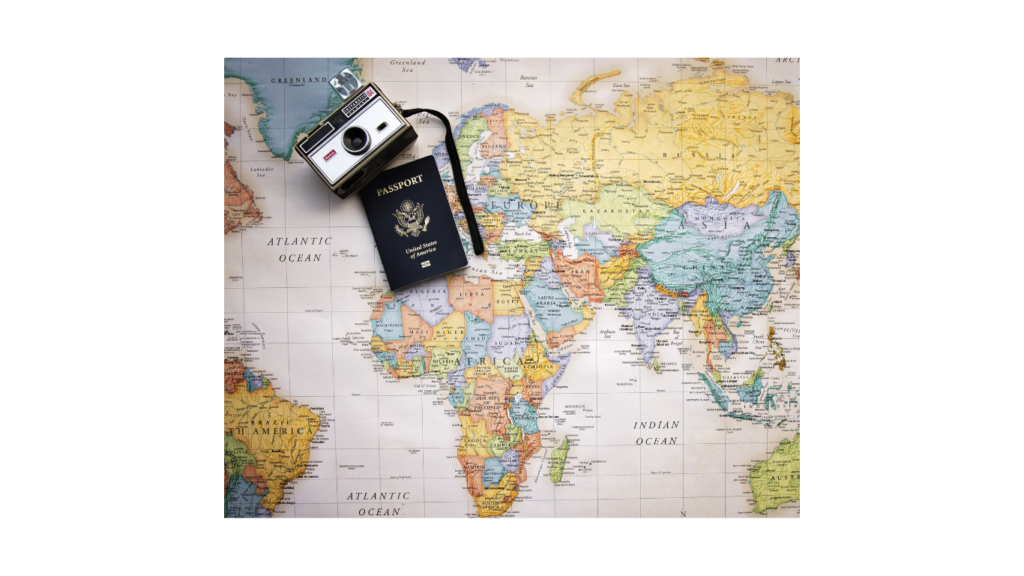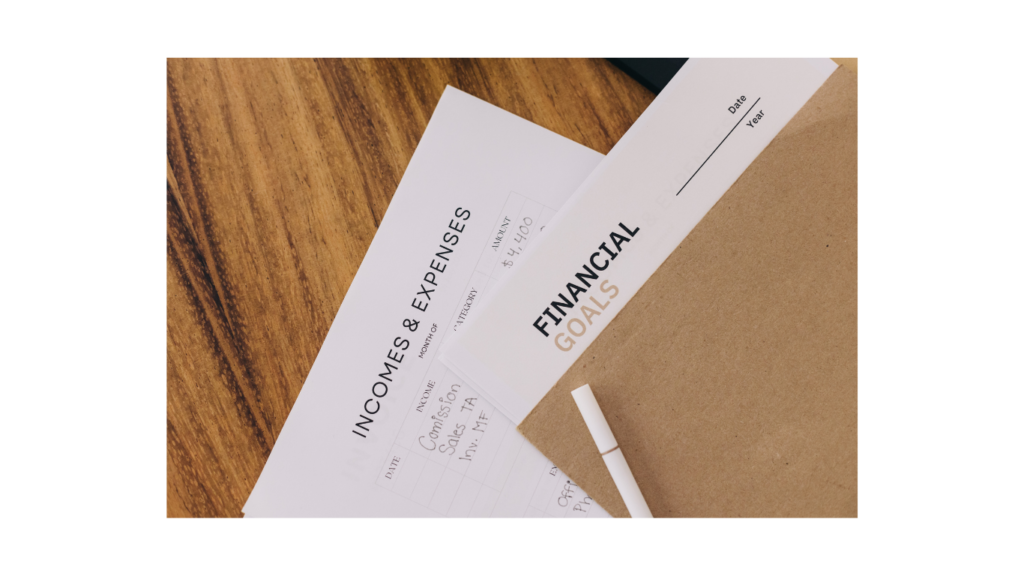This post may contain affiliate links. This means that if you click on one of my links and make a purchase, I receive a commission at no extra cost to you. See the full affiliate disclosure here.
Your Financial Takeover Starts Here

How We Save Over 60% of Our Income Every Year — Without Earning More
Struggling to save money? You’re not alone. Many of us wonder where our money goes, until we check our bank statements and realize that small, everyday purchases quickly add up.
For years, I believed that the only way to save more was to make more money. And while increasing your income can certainly help, I learned the hard way that earning more isn’t the first step to financial freedom.
Here’s the truth:
If you don’t have strong money habits in place, a higher paycheck won’t fix your financial stress. I was earning a decent income and still struggling to keep more than $5,000 in savings—and that number just wasn’t going to cut it for the life we envisioned.
Think about it. If you have big dreams like:
- Buying a home
- Raising a family
- Investing and retiring early
- Traveling the world
- Handling emergency expenses with ease
Then $5,000 won’t stretch very far.

The Turning Point: Managing What We Already Earn
When my husband and I decided to get serious about our financial goals, we realized it wasn’t just about making more, at least not immediately, it was about doing more with what we already had. We knew there had to be hidden savings in our existing budget, and we made it our mission to find them.
Sure, asking for a raise, applying for a new job, or starting a side hustle are all great long-term strategies. But they take time. What could we do right now?
We started by taking a hard look at our spending habits.
And what we found was eye-opening: With just a few simple, strategic changes, we were able to save over 60% of our income annually. That money now goes directly toward funding our goals—faster than we ever thought possible.
Here, I’ll Share the 5 Life-Changing Habits That Helped Us Get There
These aren’t extreme measures or unrealistic cuts. They’re practical, doable changes that helped us take control of our money without sacrificing the things we enjoy.
Let’s dive into the 5 habits that helped us unlock major savings—and can help you do the same.
Here’s How We Used These 5 Habits to Save More than Half of Our Income

1. How We Cut Our Grocery Bill in Half — From $600 to $300/Month
One of the biggest ways we save over 60% of our income is by slashing our grocery spending—from $600 down to just $300 per month. That’s a $3,600 annual savings just from being intentional about our food habits.
At one point, we were spending more on groceries than made sense for two people, especially when we regularly ordered takeout or dined out. We realized our grocery habits were more about impulse than actual meal planning.
The Problem: Overbuying and Food Waste
I used to shop based on the meals I wanted to cook, not the ones I actually had time to prepare. As a result, fresh produce often spoiled before I used it, and my freezer was filled with unused meats and ingredients. Trips to the grocery store were nearly daily because I didn’t plan ahead—and that added up quickly.
The Turning Point: Simplifying and Planning
Everything changed when we started meal planning and practicing intermittent fasting. Instead of three meals a day, we shifted to two nutrient-dense meals between 11 AM and 6 PM. This reduced our need for snacks and late-night meals, which not only saved money but also supported our fitness goals.
We focused on simple, healthy meals built around lean proteins, healthy fats, and minimal carbs. Not only were these meals easier to prepare, but they were also more cost-effective.

Practical Tips That Helped Us Save:
- Planned Weekly or Biweekly Grocery Trips – No more daily store runs. We now plan meals in advance and shop only once or twice a week.
- Frozen Vegetables Over Fresh (When Possible) – Reduces waste and allows for long-term storage.
- Use What You Have Before Restocking – We use up 90% of our freezer inventory before buying more.
- Buy Store Brands – Unless there’s a noticeable taste difference, store-brand products work just as well for less.
- Only Buy Sale Items If They’re Used Regularly – For example, we’ll buy steak on sale only if we’re low and know we’ll use it.
These small changes helped us reduce food waste, spend less time cooking, and save thousands of dollars annually—without sacrificing nutrition or taste.
2. We Paid Ourselves First — A Game-Changer for Saving Money

One of the most powerful money-saving habits we adopted was paying ourselves first. You’ve probably heard this advice before, but like many, I didn’t fully understand how it could work when bills, rent, and credit card debt seemed so urgent.
But once I figured it out, everything changed.
What Does It Mean to Pay Yourself First?
When we get paid, the first thing we do is allocate a set amount of money—based on our long-term financial goals—into our savings, investment accounts, emergency fund, and even a vacation fund. Only after we’ve “paid ourselves” do we take care of fixed expenses like rent, utilities, and credit card payments.
Finally, whatever is left goes toward variable costs such as groceries, dining out, and entertainment.
Why This Works: Prioritizing Your Financial Future
This strategy helped us become much more mindful about our spending habits. If we want more room in our entertainment or lifestyle budget, we don’t take away from our savings goals. Instead, we look for areas to cut back—such as subscriptions we don’t use, or bills we can renegotiate.
Budgeting Tip: Make Your Budget Work For You
One of the key principles we follow is budgeting with intention. Here’s how:
- Set financial goals first – Allocate money toward savings, investments, and emergency funds before anything else.
- Track fixed and variable expenses – Identify where your money is going each month.
- Adjust your spending categories – If entertainment matters to you, see where you can reduce in other areas to make room.
- Review and revise monthly – Your budget isn’t set in stone. Reassess regularly to make sure it aligns with your goals and lifestyle.
By putting our future first, we’ve not only built financial stability but also created the freedom to enjoy life now—guilt-free. Whether it’s travel, dining out, or hobbies, we budget for the things we love without compromising our financial well-being.
3. We Budget for Everything — Every Season and Every Event
One of the most effective habits that’s helped us save over 60% of our income is budgeting for everything—literally. That means we plan for both predictable and seasonal expenses, so we’re never caught off guard.
My husband and I do a quarterly review of our spending, which helps us stay organized and financially prepared throughout the year.

Q1: January – March
The first quarter is typically quiet, with the exception of a few birthdays. Since it’s cold and we spend more time at home, our variable expenses like dining and entertainment are lower.
One major focus during this time is preparing our taxes. As self-employed professionals, we’re responsible for quarterly estimated tax payments, but we allocate funds for these taxes ahead of time—starting the year before. This eliminates the stress of coming up with large payments unexpectedly.

Q2: April – June
Spring brings a bit more activity. We celebrate Easter, which might include purchasing new clothes and preparing a larger holiday meal. Our grocery budget may increase slightly, but it’s a planned increase.
This is also when we start preparing for one of our larger annual vacations. Since travel is a priority, we contribute to our vacation fund every month. Being realistic about the full cost of a trip—including travel, accommodation, food, and extras—means we plan thoroughly and avoid debt. We also maximize travel points and rewards through select credit cards to reduce out-of-pocket costs.
Another round of estimated tax payments happens this quarter—again, already planned for.
What predictable expenses arise throughout the year for you?

Q3: July – September
Summer is packed with fun and birthdays—80% of our family and several friends celebrate during this time. In the past, these months were overwhelming because we hadn’t planned ahead. Now, we budget for birthday gifts, celebrations, and summer activities in advance.

Q4: October – December
The final quarter is filled with holiday joy and giving. We love celebrating the season through festive outings and buying gifts for loved ones. And yes, we plan for every gift in our holiday budget.
Since we are both self-employed, we also give employee gifts at the end of the year. These are meaningful gestures that double as business write-offs—so don’t forget to save your receipts for tax time.
If you’re ready to simplify your money management, check out our method: Read ‘The ‘Goal Focused Budget’: The Easiest Budget Method You’ll Ever Need’ to help you start your journey.
4. We Cut Unnecessary Expenses — Without Sacrificing Comfort
One of the simplest yet most impactful habits we adopted was eliminating expenses that didn’t add value to our lives. By trimming the fat from our monthly budget, we created extra breathing room to save and invest more—without feeling deprived.

Start with Subscriptions: Are You Really Using Them?
We once had multiple streaming services—Netflix, Hulu, Disney+, you name it. But after reviewing our actual usage, we realized we consistently watched just one platform and only occasionally used a second. So, we canceled the rest.
Tip: Cutting subscriptions doesn’t have to be permanent. You can always re-subscribe later, especially if you’re between financial goals or just need a temporary break to save more.
Shop Around for Better Rates
When I noticed our car insurance premium had gone up, I took the time to compare rates from other providers. The result? A savings of $70 per month—that’s $840 a year!
I also discovered that taking a defensive driving course—which only took six hours—could cut another 10% off our premium. Small effort, big reward.
Reevaluate Your Cell Phone Plan
Your phone bill might be another area where you’re overspending without realizing it. Major carriers often charge premium prices for services you can get at a lower cost.
Many smaller, budget-friendly carriers use the exact same networks as the big brands, offering nearly identical coverage at a fraction of the price. Switching to one of these providers could save you hundreds of dollars per year.
Small Cuts, Big Gains
Reducing your expenses doesn’t mean living uncomfortably—it means spending smarter. Whether it’s canceling underused subscriptions, shopping around for insurance, or switching phone plans, these small changes can lead to significant monthly savings.
By cutting just a few unnecessary costs, we were able to redirect that money toward our emergency fund, travel fund, and other financial goals.
5. How We Still Eat Out Without Breaking the Bank
Let’s be honest—eating out can get expensive fast, especially with rising inflation. A casual dinner date for two can easily cost $60 to $120 or more, depending on where you go and what you order.
We didn’t want to give up the experience of dining out, especially since we live near a village full of amazing restaurants. But we also knew we couldn’t keep spending that much and still meet our financial goals.

The Smart Solution: Eat Out Strategically
My husband came up with a simple yet brilliant strategy: take advantage of restaurant deals.
We researched our local restaurants to find out when they offer:
- Happy Hour specials
- Taco Tuesday discounts
- Midweek dinner deals
- Seasonal promos and loyalty rewards
Now, instead of choosing a restaurant randomly, we plan our nights out around these specials. Not only do we still enjoy the experience of eating out, but we also cut our dining costs sometimes by 50% or more.
Why This Works
- You still get to enjoy dining out without feeling guilty.
- You support local restaurants during slower days, when they offer these specials.
- You stay within your budget while still indulging in experiences that bring you joy.
It’s a win-win. Saving money doesn’t always mean cutting out the things you love—it just means doing them smarter.
Financial Freedom Doesn’t Mean Deprivation
By finding creative ways to reduce costs, like planning meals around deals and happy hours, we’ve managed to stick to our savings goals without sacrificing the things that make life enjoyable.
You are there! You know the habits, now implement them. Tackle your grocery bill, pay yourself first, budget for your needs, review and cut expenses, and eat dinner at a discount.
You can’t go wrong trying even 1 of these habits and working up to all 5. The savings are real and encouraging. It will only motivate you to keep going and stay on track.
I will help you learn the tools you need to make better financial decisions, improve your money-management skills, and get you on the path to retiring early and enjoying financial independence.
I care to make this a fun journey rather than a restrictive one but that takes being mindful, practical, and intentional with your financial habits.
Sign up to be part of the email list and continue to get insightful personal finance tips.
Until next time,
The Financial Takeover



Pingback: The ‘Goal Focused Budget’: The Easiest Budget Method You’ll Ever Need – The Financial Takeover